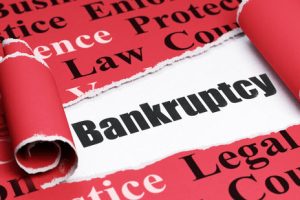Can Chapter 13 Bankruptcy Save My Car?

Legally, banks may begin automobile repossession procedures after just one missed payment. If the borrower has been late before, the lender may file repossession paperwork as soon as possible. It is almost impossible to undo automobile repossession. The original lender usually keeps the note for the duration of the loan, so there are usually no gaps in the process. That’s typically not true of home mortgage loans, which may be bought and sold multiple times.
So, if there is any risk of automobile repossession, you should probably consider filing a payment plan bankruptcy. This move stops the repossession process and gives you the time you need to catch up on payments. All these things occur under the close supervision of a bankruptcy judge.
The Automatic Stay in Illinois
In spread-out urban areas like Chicago, people rely on their vehicles a lot. Without them, there may be no other way to run errands, get back and forth to work, or get the kids to and from school. In other words, no vehicle means that life comes to a standstill.
Section 362 of the Bankruptcy Code has basically the same effect on the repossession process. Once debtors file their voluntary petitions, creditors generally cannot take adverse action without special permission from the bankruptcy judge. Adverse action includes things like:
- Vehicle repossession,
- Home foreclosure,
- Wage garnishment, and
- Creditor harassment.
Typically, the automatic stay remains in place for the entire three or five-year Chapter 13 life cycle. So, as long as the debtor is current on payments as outlined below, the lender cannot repossess your car no matter how far behind you are.
The Chapter 13 Repayment Period in Illinois
Depending on the debtor’s income, the protected repayment period may last up to five years. At the 341 creditors meeting, which takes place about six weeks after the petition is filed, the debtor sets up a monthly repayment plan. The trustee (person who oversees the bankruptcy for the judge) essentially places the debtor on an allowance. Any disposable income goes toward debt retirement.
Most of this money goes to the arrearages on secured debts, such as auto loans and home mortgages. At the end of the repayment period, the debtor is current. Essentially, Chapter 13 is like a financial do-over. The problems of the past are erased and both creditor and debtor simply move forward.
Advanced Options in an Illinois Chapter 13
New cars depreciate very quickly. As a result, most owners are underwater on their new car loans. For example, an owner might owe $20,000 on a vehicle that is only worth $10,000.
Many Illinois Chapter 13s include a redemption option. The debtor pays the fair market value of the collateral, and the creditor must forgive the remaining balance. In this example, the debtor might be able to pay $10,000, own the car free and clear, and not have to pay the remaining $10,000.
Connect with Experienced Lawyers
Chapter 13 helps owners keep their cars in both the short and long haul. For a free consultation with an experienced bankruptcy attorney in Chicago, contact the Bentz Holguin Law Firm, LLC. After hours visits are available.
Resource:
edmunds.com/car-loan/stay-one-step-ahead-of-the-repo-man.html


